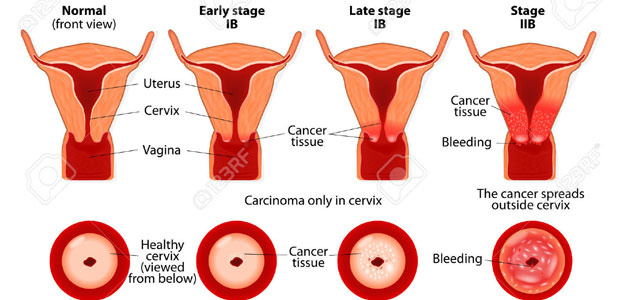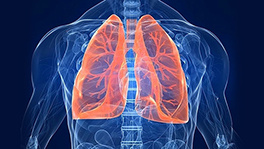
What Is Vaginal Cancer?
Vaginal cancer is a malignant tumor arising from vagina. Primary vaginal cancer is rare in the general population of women and is usually a squamous-cell carcinoma. Metastases are more common. Vaginal cancer can be spread from cervical cancer, endometrial cancer, ovarian cancer and choriocarcinoma, besides, cancer cells originating from bladder, urethra, or rectal can often spread to vagina.
If you are diagnosed with cancer, please consult online doctors for more information.
What are the Symptoms of Vaginal Cancer?
Often, there are no symptoms in early stage, and the cancer is found through a routine gynecologic exam. If there are symptoms, they are commonly:
Vaginal bleeding. It is more manifested as contact bleeding after sexual intercourse, generally appearing after intercourse or menopause.
Vaginal discharge. It is mainly related to necrosis of tumor tissues and infection. The excretion can be watery, and sometimes rice water like (little sticky and milky white liquid), or can be mixed with blood.
Compression symptoms. When advanced tumors compress the adjacent organs, there will be corresponding compression symptoms. For instance, when compressing bladder and urethra, urgent micturition, frequent urination, hematuria (blood in urine) can be caused; when compressing rectum, there may be difficulty in defecation and blood in the stool.
If you are diagnosed with cancer, please consult online doctors for more information.
What are the High-risk Populations?
Women at age of 60~65 years old.
Young women taking estrogen during pregnancy may cause vaginal clear cell carcinoma.
Women who are with early marriage, early child-bearing and with many times of child-bearing are high-risk groups of primary vaginal cancer.
Women who have m multiple sexual partners.
Staging of Vaginal Cancer
Stage 0 vaginal carcinoma in situ
Stage I cancer is confined to the vaginal wall
Stage II cancer has invaded tissues around vagina, but it has not invaded pelvic wall
Stage III cancer has reached pelvic wall
Stage IV cancer has been spread beyond true pelvis or it has invaded bladder, rectum mucosa of rectum, etc
Stage Iva cancer has invaded the adjacent organs
Stage IVb cancer has spread to distant organs
If you are diagnosed with cancer, please consult online doctors for more information.
How are the Diagnosis Methods of Vaginal Cancer?
Pap smear;
Pelvic examination;
Biopsy, cytology.
What are the Treatments for Vaginal Cancer?
A. SurgeryCarcinoma in situ of the vagina can be removed by surgery which resects part of vagina or total vagina, at the same time, vaginoplasty will be performed; early patients whose upper vagina tumor has not been infiltrated deep can be treated with extensive hysterectomy, removal of part of vagina and pelvic Lymph node dissection; as for patients with early lesions of lower segment, the vaginal and vulvar resection and inguinal lymph node dissection can be done.
B. ChemotherapyTreatment effect of single chemotherapy is not obvious in vaginal cancer treatment, so it often combines with radiotherapy, which can enhance the therapeutic effect.
C. RadiotherapyRadiotherapy for vaginal cancer includes internal radiotherapy (brachytherapy) and external irradiation therapy (teletherapy). Brachytherapy mainly targets at primary lesions of vagina and the adjacent infiltration zone, while teletherapy mainly aims at infiltration area around tumor and metastatic lymph nodes area.
D. Minimally invasive treatmentIn addition to be with small trauma and rapid recovery, minimally invasive treatment for vaginal cancer also can shorten time of hospitalization and reduce medical cost, so it is more and more welcomed by patients.
E. Traditional Chinese medicine therapyTraditional Chinese medicine in treating vaginal cancer can quickly destroy and prevent division and reproduction of cancer cell, so that tumor will reduce gradually. Chinese medicine therapy is usually combined with surgery, chemotherapy and radiotherapy, which can reduce the side effects of radiotherapy and chemotherapy and enhance the therapeutic effect.
If you are diagnosed with cancer, please consult online doctors for more information.
What are the indications of postoperative nursing for patients with vaginal cancer?
When putting into the vagina speculum, action should be light, turning the speculum slowly, so as not to damage the cancer tissue, causing massive bleeding.
Patients with menstrual period or vaginal bleeding are forbidden from douching, in order to prevent intrauterine infection.
Solution concentration for douche should be accurate and temperature should be appropriate, generally 38 ~41 ℃.
Douching pressure should be appropriate. If pressure is excessive, douching solution is easy to flow into uterine cavity, but if pressure is too small, there will no effect for douche.
Observe the changes of patient’s condition. If there is continuous bleeding or massive bleeding, douche should be immediately stopped and gauze should be tamped into vagina, informing physicians to cope with it.
For patients with swelling, congestion, ulcer of genital or vaginal stenosis, a miniature speculum should be used to douche so as to relieve patient’s pain.
Douching solution should be changed every day and the washing barrel should be brushing and disinfected 1 times weekly.
If you are diagnosed with cancer, please consult online doctors for more information.


 (MY)+60 10-898 8919
(MY)+60 10-898 8919























